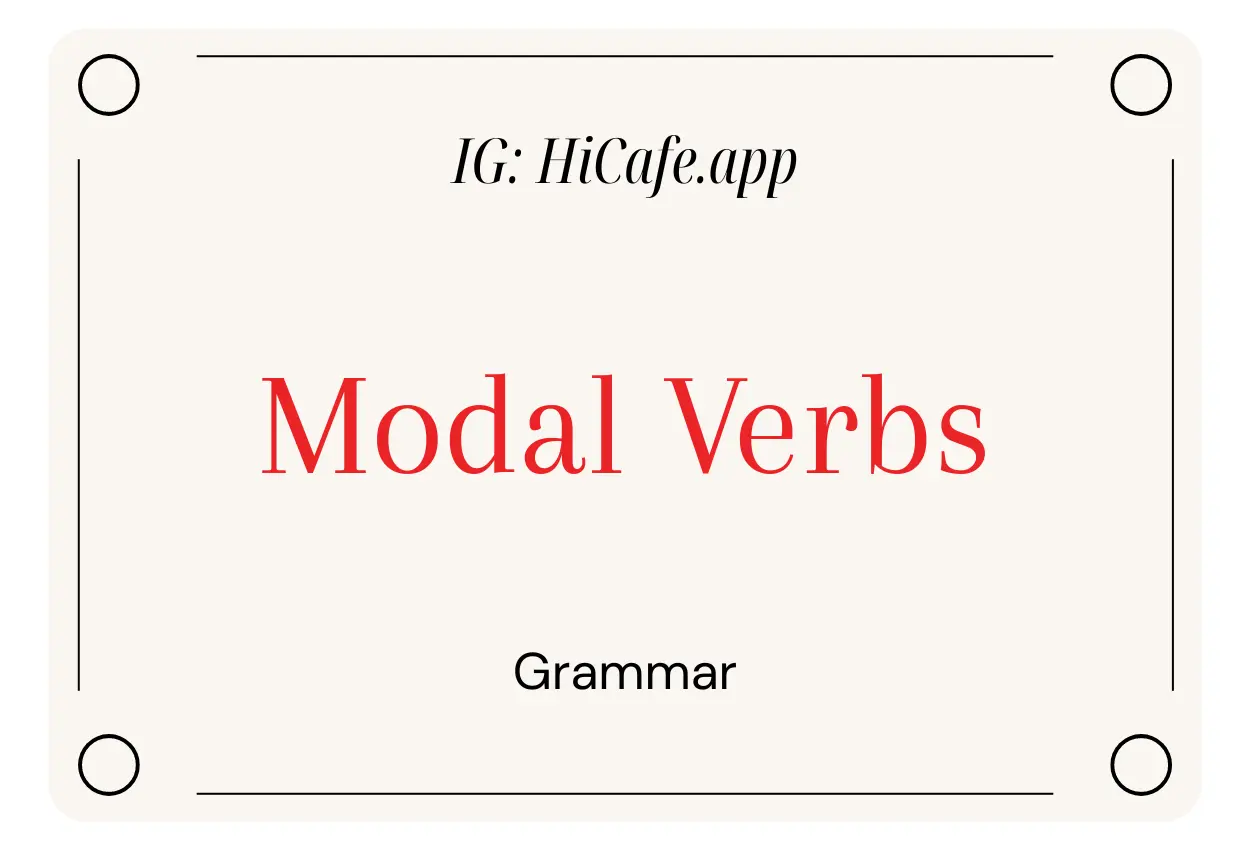Grammar Level 3- Lesson Ten- Modal Verbs Grammar
In this grammar lesson, you learn about Modal Verbs grammar in English and how to use it in your English conversation and writing. Just follow examples and write them down a few times to learn them very well. After finishing this lesson, you should work on its quiz.
Grammar Recap
In our previous lesson, we covered the Past and Past Continuous Tense If you just landed on this page, we suggest that you complete our previous lesson including its quizzes before continuing on this lesson.
Requirement Lessons
There is no required lessons for working and learning this lesson.
Modal Verbs Examples
|
Modal Verb
|
Example in a sentence
|
|||||||||||
|
can: possibility and ability
|
This baby can crawl.
negative contraction: can’t crawl |
|||||||||||
|
will: future
|
He will go to the beach later today.
negative contraction: won’t go |
|||||||||||
|
shall: possibility and future possibility
|
We recommend that you don’t use shall if your interest is in American English. 98 % of the American public doesn’t use it. It sounds very formal. In fact, it sounds too formal. |
|||||||||||
|
may: possibility and permission |
1. (future possibility) They may walk their dogs this afternoon. 2. (Asking permission) A: May I walk your dog? B: Yes, you may.
negative: may not walk (don’t contract this one!) |
|||||||||||
could
|
When I went out to eat last night, I couldn’t read the signs because they were in Chinese.
negative contraction: couldn’t read |
|||||||||||
|
would: past tense of “will”
|
She wouldn’t touch the spider she saw earlier this morning because she’s afraid of them.
negative contraction: wouldn’t touch |
|||||||||||
| should:
recommendation and good idea. (Related to “shall” but much better and easier to use.) |
He should be careful on those roller skates because he could fall.
negative contraction: shouldn’t be |
|||||||||||
| might:
possibility (use instead of “may” in some cases) |
These eggs might break when they hit the ground. In fact, they’ll probably break unless they land on something soft.
negative: might not break (don’t contract!) |
|||||||||||
|
must: necessary and important
|
They must attend this important meeting.
negative: must not attend (a contraction here is okay, but it sounds formal and it sounds British. Most Americans try not to sound like they have a British accent, but you may use the contraction if you want to) |
|||||||||||
|
Remember: Modal verbs are followed by the main verb in the simple form. I must go. He must be tired. They should eat. |
||||||||||||
Quiz for Modal Verbs
Now that you learned your new lesson, it is time to go to the Modal Verbs page and finish your quiz. While working on your quiz, you can always go back to its lesson to refresh your memory.
Private Lessons in English
If you need help with quizzes of this lesson, you can hire one of our expert private English teachers by going to our Private English Tutoring page and submit a request. When submitting your request, make sure to mention the grammar level and lesson number.
Next Grammar Lesson
In our next lesson, we will cover the Idiomatic Modal Verbs Before moving to the next lesson, we suggest that you complete this lesson including its quizzes.
Related Grammar Lessons
None
Grammar Level 3 Outline
If you wish to explore all lessons that are covered in HiCafe Grammar Level 3, you can visit the Grammar Level 3 Outline page.
Practice English Grammar Skills
For a comprehensive practice of English grammar with quizzes, you can visit the Improve English Grammar Skills page to view HiCafe 250 grammar lessons in 7 levels plus prepositions and pronouns.



